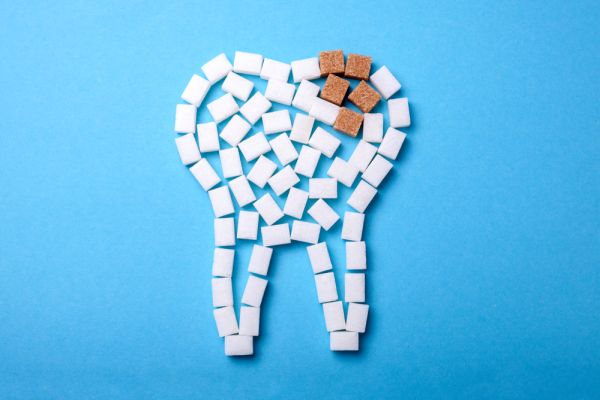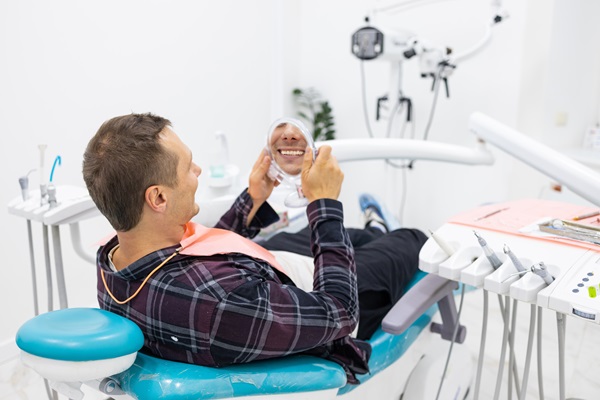4 Ways to Keep Your Tooth Bonding in Good Condition

Tooth bonding is a common restoration provided by dentists for children and adults alike. It is considered the least invasive restoration method because the procedure does not require scraping part of the enamel from the tooth surface. Instead, the dentist will abrade the teeth, rub on a moisturizing mixture and then put the bonding material on the surface of the tooth to shape and harden it.
The tooth bonding process requires the expertise of a cosmetic dentist to give the bonding a natural appearance. Aside from that, the process is fast and causes mild to no irritation to the tooth involved. Tooth bonding is an inexpensive cosmetic solution that you can consider.
Dental bonding is typically used for:
- Masking teeth stains
- Closing little spaces between the teeth
- Change the shape and size of teeth
- Repair cracked or chipped teeth
The versatility of tooth bonding and the simplicity of the entire procedure make it the treatment of choice for many patients. You should know, however, that bonding materials do not have the same resilience as crowns and may not last for as long. There are ways to keep your dental bonding in good condition to last a long time. The following are a few steps you can take.
How to protect bonding
1. Monitor the consumables you eat
After the tooth bonding process is complete, you can eat every one of your favorite meals. The major point is to avoid chewing on hard substances such as ice and hard nuts or biting on pencils or fingernails. Be wary of the things you put in your mouth; if something is too hard, find something else. Also, avoid acidic drinks and foods because they cause erosion of the teeth and may damage the bonding and the tooth.
2. Maintain excellent oral hygiene
Dentists place the bonding material on the surface of the natural teeth, meaning you are still prone to getting a cavity or infection in the tooth. You should brush your teeth at least twice daily, floss after meals and visit the dental office biannually for professional teeth cleaning to reduce the risk of tooth decay or oral diseases. You should also increase your water intake to increase saliva production and prevent dry mouth.
3. Avoid teeth grinding
Grinding the teeth while sleeping is a common condition, and although there are multiple causes, most people grind their teeth more when they are under intense stress. When you visit the dental office, the dentist will check for signs of teeth grinding, and if you wake up with a sore jaw in the morning, it could be a sign of teeth grinding. You can wear a night guard to prevent any possible damage to the tooth bonding. The guard will prevent the teeth from meeting and protect the bonding material from cracking, chipping or abrasion.
4. Wear a mouthguard
Sports injuries are regular among children and adults. Protective gear is not necessary for kids alone, but also for adults. Sports injuries are one of the major causes of tooth damage, and using a mouth guard is an easy way to prevent this.
Request an appointment here: https://www.emersondental.com or call Emerson Dental Associates at (201) 620-9998 for an appointment in our Emerson office.
Check out what others are saying about our services on Yelp: Read our Yelp reviews.
Recent Posts
When considering full mouth reconstruction to restore oral health, it is important to learn about the process, including the choice to make. When multiple dental issues are present, a full mouth reconstruction is usually the best procedure to correct the problems and restore oral functions and one's appearance. Since there is a lot of information…
Dental implants are a great way to replace multiple missing teeth. A dental bridge is also a solution for multiple teeth replacement in many cases as well. By learning more about the pros and cons of each option, it will help you decide which treatment option is right for you. Missing teeth create a cosmetic, functional…
No one looks forward to tooth extraction, but sometimes it is necessary for a person's oral health. This is often the case with the last adult teeth to erupt, the wisdom teeth. Many people need to have one or more of their wisdom teeth removed because they are not coming in right, there is not…
Preventive dentistry involves using the right products. This includes selecting the right toothpaste. There is a type of toothpaste for every person. If you want to enhance your preventive dentistry brushing strategy, here are some tips on choosing the right toothpaste.The attending dentist will be the judge of the most suitable toothpaste. The dentist knows…


